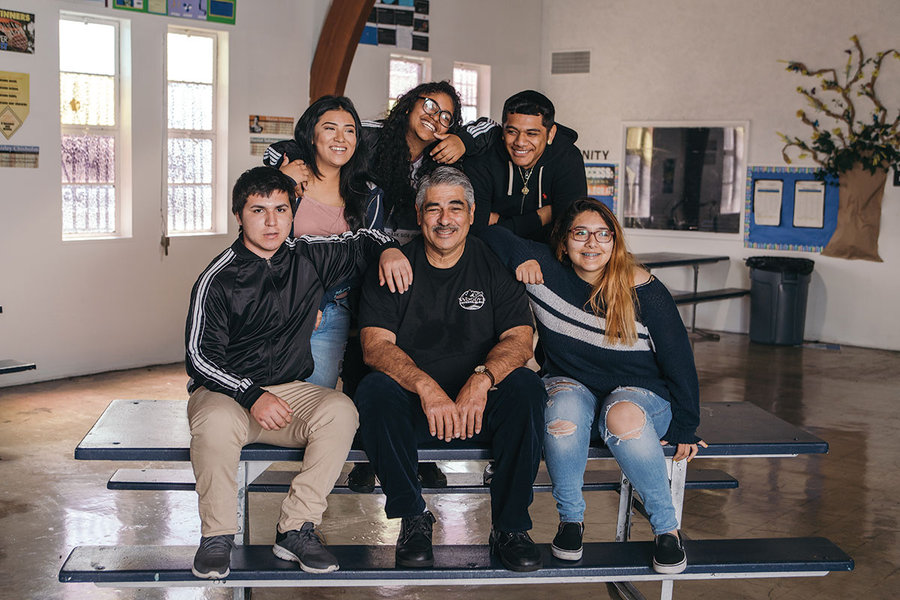
Published in The Christian Science Monitor, By Baltazar Villalba
Baltazar Villalba found it’s not too late to pursue your passion and that bringing your own experiences to the table can make your work more effective.
My family came to the United States from Mexico when I was 5, so I was an English-language learner in school and had to work very hard. After finishing high school, it took me eight years to graduate from California State Polytechnic University, Pomona while working full time at night.
I started out as an aerospace engineer and transferred into marketing, working at Hewlett-Packard and IBM for most of my career. Then I became a financial adviser, but ultimately didn’t find it satisfying enough.
I had always dreamed of teaching children with a background like mine, and I was 59 years old, so I knew it was now or never. I found out about the EnCorps STEM Teachers Program in California, which would allow me to explore the possibility of becoming a science, technology, engineering, or math teacher in a high-needs middle or high school. I quickly applied and was accepted.
It’s a two-year program that includes both being in the classroom and working to complete your teaching credential. At first, you volunteer as a tutor or guest teacher for two to five hours per week in a partner school. Your mentor-teacher helps you prepare, gives you feedback, and even offers support after you finish the program and get your first job. I started off assisting my mentor-teacher, and by the second half of the year, I’d taken over two of his five classes. It’s a gradual increase in responsibilities, and EnCorps sets you up for success as best it can.
My first job was the hardest assignment you can get, in the tough Los Angeles neighborhood of Watts. I spent my first year there teaching math in a middle school, and the following two years I taught at the Academy of Science & Engineering. When I spotted a job opening within the high school
network Soledad Enrichment Action and I saw the students, I knew it’s where I wanted to work. I’m in my third year there, and I love it.
It’s so much more satisfying than what I used to do for work. The best is when you see a student really getting something for the first time. Especially algebra, which can be very confusing. Sometimes I was so confused at their age that I couldn’t even ask a question, so I know that feeling.
These young people get yelled at all the time, so I try to never yell at them. As a new teacher it can be frustrating, but the second you yell they won’t listen to you anymore. You have to be very calm. They want respect. Some of them have such difficult lives. I want them to know right off the bat that I’m on their side.
I feel comfortable with them. Some of them may look intimidating, but they’re just kids. They just want someone to listen to them and believe in them. I get to be a male figure in their lives who says, “You could be an engineer.”
I feel relevant again, like what I do is really important. I don’t plan on ever retiring.
